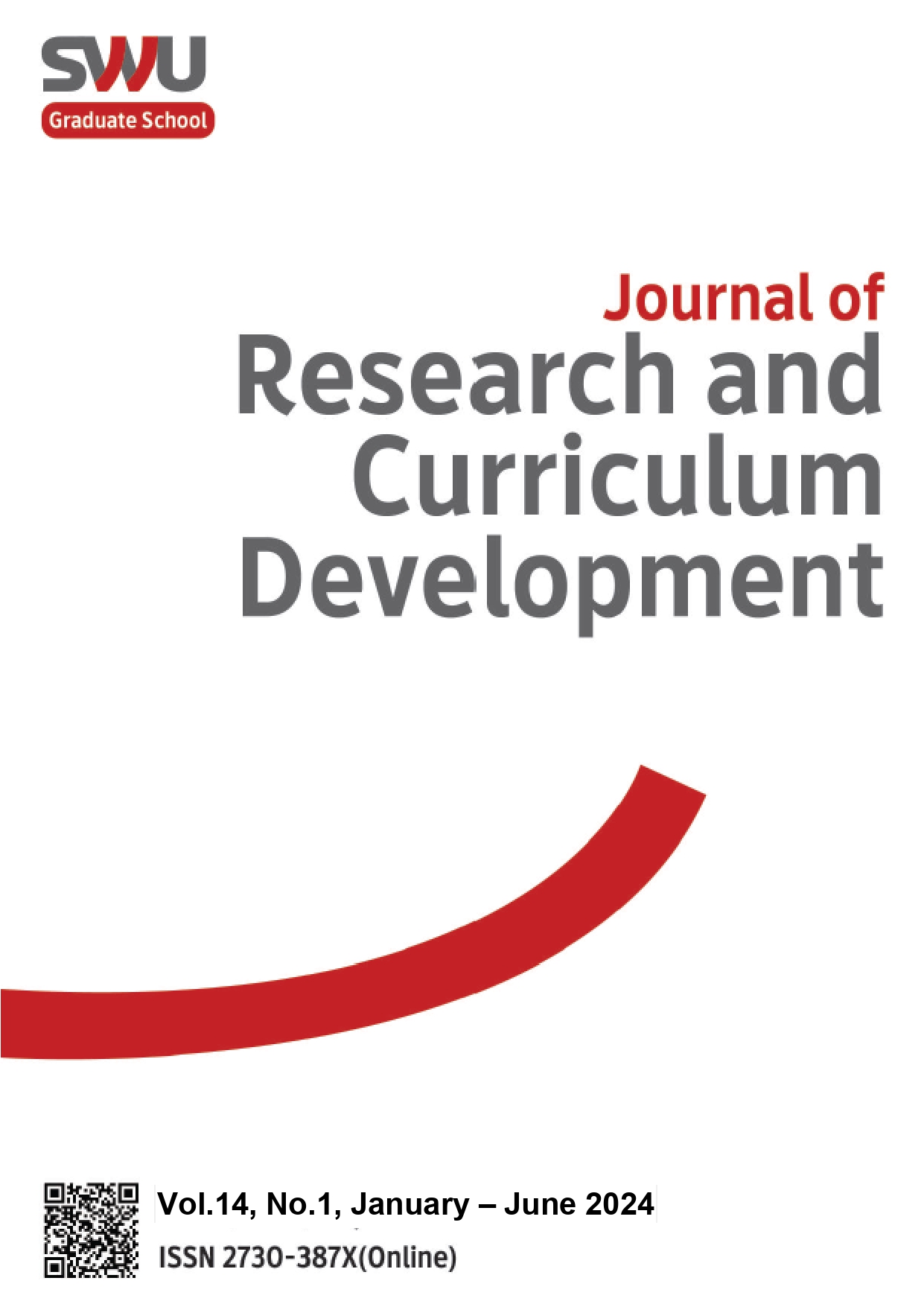A Comparative Study of Educational Policies in South Korea and Thailand During 1945-1980
Keywords:
Educational policy; Educational development; Economic developmentAbstract
This article examines the educational policies of South Korea and Thailand during the period that both countries desired to adjust to rapid change and catch up to modernization. Thailand began to promote educational developments in the 1870s, earlier than South Korea, whose educational system was restrained during Japanese colonialism, and where education reformation began in 1950. Yet, South Korea overtook Thailand in both educational achievements and developments. The aim of this article is to compare the educational policies between Korea and Thailand from 1945-1980. The research shows that the Korean educational policies that are related to economic development during 1960-1980 were better and more efficient policies than that of Thailand and the establishment of the Economic Planning Board (EPB) in 1961, and brought about a compatible policy of education and economic development. On the other hand, the Thai government paid less effort in achieving its goal. This can be seen from having no mechanisms for coordinating the supply of skilled workforces to meet the demands of industry and the educational indifference of Thai governments. As a result, the goal of education for economic growth has not been achieved in practice.
References
Adams, D. & Gottlieb, E. E. (1993). Education and social change in Korea. Garland Publishing.
Ashton, D. (1999). Education and training for development in Asia: The political economy of skill formation in East Asian newly industrialized economies. Routledge.
Douangngeune, B., Hayami, Y. & Godo, Y. (2004). Education and natural resources in economic development: Thailand compared with Japan and Korea. National Graduate Institute for Policy Studies, 16(2),179-204.
Education Planning Office. (1965) “Seminar on educational Planning and Manpower Development in Thailand” (September 27-30, 1965). Publication Number 10, Ministry of Education, 1965.
Gill, I. S. & Ihm C. (1996). Vocational education and training reforms in Korea: Constraints and innovations? In KDI/ World Bank/ UNECA International Development Exchange Program, Study Tour on Economic Development and Human Capital in Korea, 12/10/ 1996.
Haddad, W. D. (1990). Education and development: Evidence for the new priorities. World Bank Discussion Papers, 1990, p. 1.
Kunio, Y. (1999). The nation and economic growth: Korea and Thailand. Translated by Sukanya Nitankorn & Anong Rojanavanich, Thammasart University, 2003.
Kuznets, S. (1996). Modern economic growth: Rate, structure and spread. Yale University Press.
Lee, J. (1997). Economic growth and human development in the Republic of Korea: 1945-1992. World Bank, Paper. http://hdr.undp.org/docs/publications/ocational_papers/oc24aa.htm
Lee, J. (2006). Educational fever and South Korean higher education. Electronic Journal of Educational Research, 8(1). http://redie.uabc.mx/vol8no1/contents-lee2.html
Lee, Y. D. (1974). Educational innovation in the Republic of Korea. Experiments and innovations in education,12 (Asian Series), The UNESCO Press.
Ministry of Education (South Korea). (1978). Education in Korea 1978. Ministry of Education.
Ministry of Education (South Korea). (1986). Education in Korea 1985-1986. Ministry of Education.
Ministry of Education (South Korea). (1996). Education in Korea 1995-1996. Ministry of Education.
National Education Council. (1970). Present Conditions of Primary Education. Ministry of Education of Thailand.
National Institute for Education Research. (1993). International Comparison of Mathematics Education. In K. Yoshihara. (1999). The Nation and Economic Growth: Korea and Thailand. National Institute for Education Research.
Okoh, Samuel E. N. (1980). Education as a source of economic growth and development-an Essay. The Journal of Negro Education, 49(2), 234-241.
Tupprasert, P. (1985). Historical analysis of practices in Thai compulsory education. [Master thesis, Chulalongkorn University].
Watson, K. (1980). Educational development in Thailand. Heinemann Educational Books Limited.
World Bank. (1980). World development report 1980 (English). World Development Report, World Development Indicators Washington, D.C.: World Bank Group. http://documents.worldbank.org/curated/en/430051469672162445/World- development
-report-1980
World Bank. (1989). Educational development in Thailand: The role of World Bank lending. World Bank Operations Evaluation Department. Washington DC, World Bank 1989. https://documents.worldbank.org/pt/publication/documents-reports/documentdetail /288761468915315576/thailand-educational-development-in-thailand-the-role-of-world-bank-lending
World Bank. (1993). The East Asian miracle: Economic growth and public policy. A World Bank policy research report Washington, D.C.: World Bank Group. Retrieved from http://documents.worldbank.org/curated/en/975081468244550798/Main-report
World Bank. (1995). World development report 1995. Oxford University Press. https://doi.org/10.1596/978-0-1952-1102-3
World Bank. (1998). Thai Education Achievements, Issues and Policies. Education Sector Unit, Report No. 18417 TH, September 21, 1998. https://documents1.worldbank.org/curated/pt/605431468777588612/pdf/multi-page.pdf
Downloads
Published
How to Cite
Issue
Section
License

This work is licensed under a Creative Commons Attribution-NonCommercial-NoDerivatives 4.0 International License.


